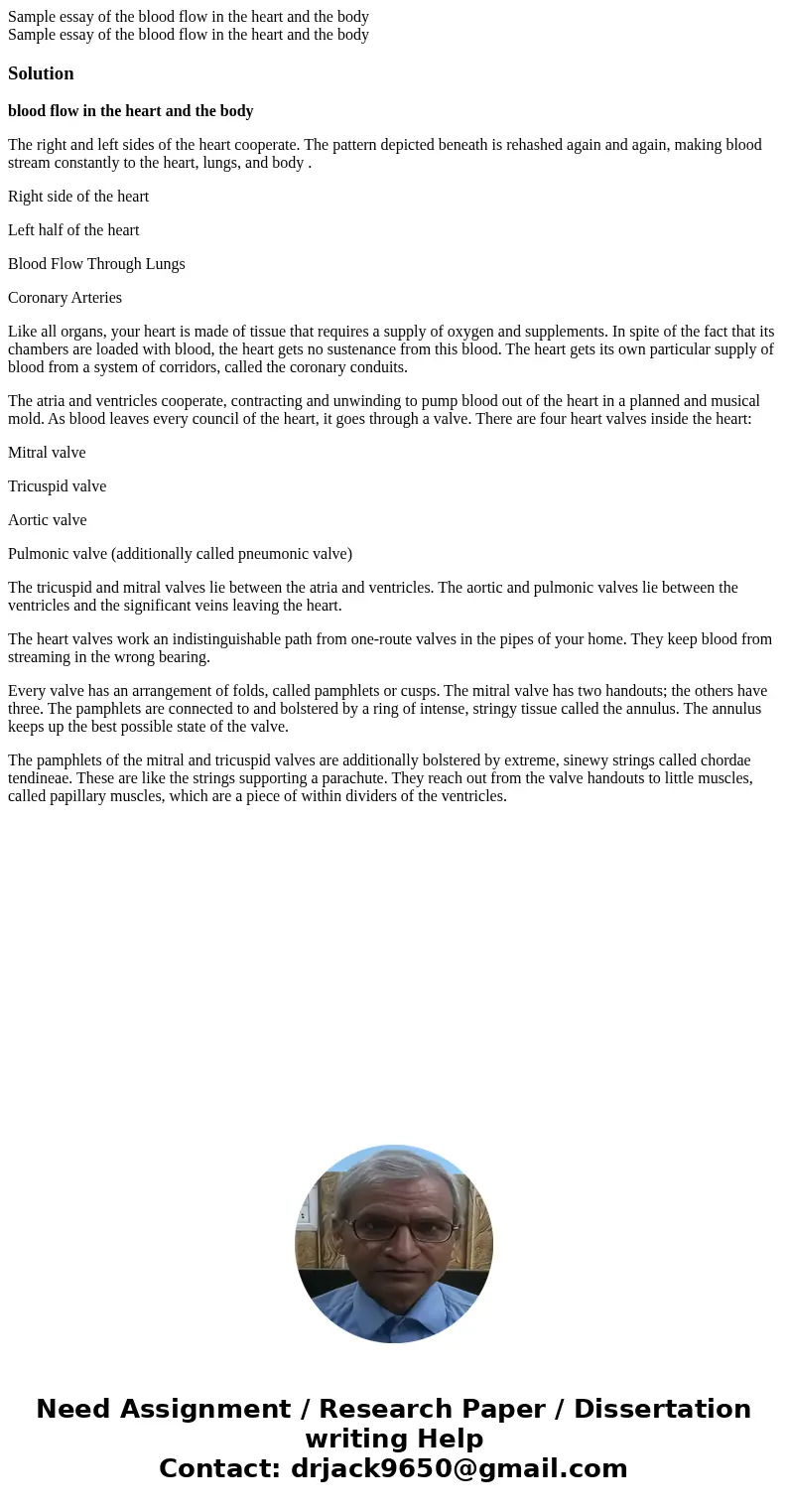Sample essay of the blood flow in the heart and the body Sam
Solution
blood flow in the heart and the body
The right and left sides of the heart cooperate. The pattern depicted beneath is rehashed again and again, making blood stream constantly to the heart, lungs, and body .
Right side of the heart
Left half of the heart
Blood Flow Through Lungs
Coronary Arteries
Like all organs, your heart is made of tissue that requires a supply of oxygen and supplements. In spite of the fact that its chambers are loaded with blood, the heart gets no sustenance from this blood. The heart gets its own particular supply of blood from a system of corridors, called the coronary conduits.
The atria and ventricles cooperate, contracting and unwinding to pump blood out of the heart in a planned and musical mold. As blood leaves every council of the heart, it goes through a valve. There are four heart valves inside the heart:
Mitral valve
Tricuspid valve
Aortic valve
Pulmonic valve (additionally called pneumonic valve)
The tricuspid and mitral valves lie between the atria and ventricles. The aortic and pulmonic valves lie between the ventricles and the significant veins leaving the heart.
The heart valves work an indistinguishable path from one-route valves in the pipes of your home. They keep blood from streaming in the wrong bearing.
Every valve has an arrangement of folds, called pamphlets or cusps. The mitral valve has two handouts; the others have three. The pamphlets are connected to and bolstered by a ring of intense, stringy tissue called the annulus. The annulus keeps up the best possible state of the valve.
The pamphlets of the mitral and tricuspid valves are additionally bolstered by extreme, sinewy strings called chordae tendineae. These are like the strings supporting a parachute. They reach out from the valve handouts to little muscles, called papillary muscles, which are a piece of within dividers of the ventricles.

 Homework Sourse
Homework Sourse